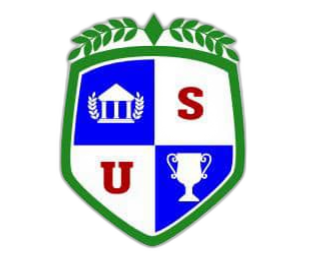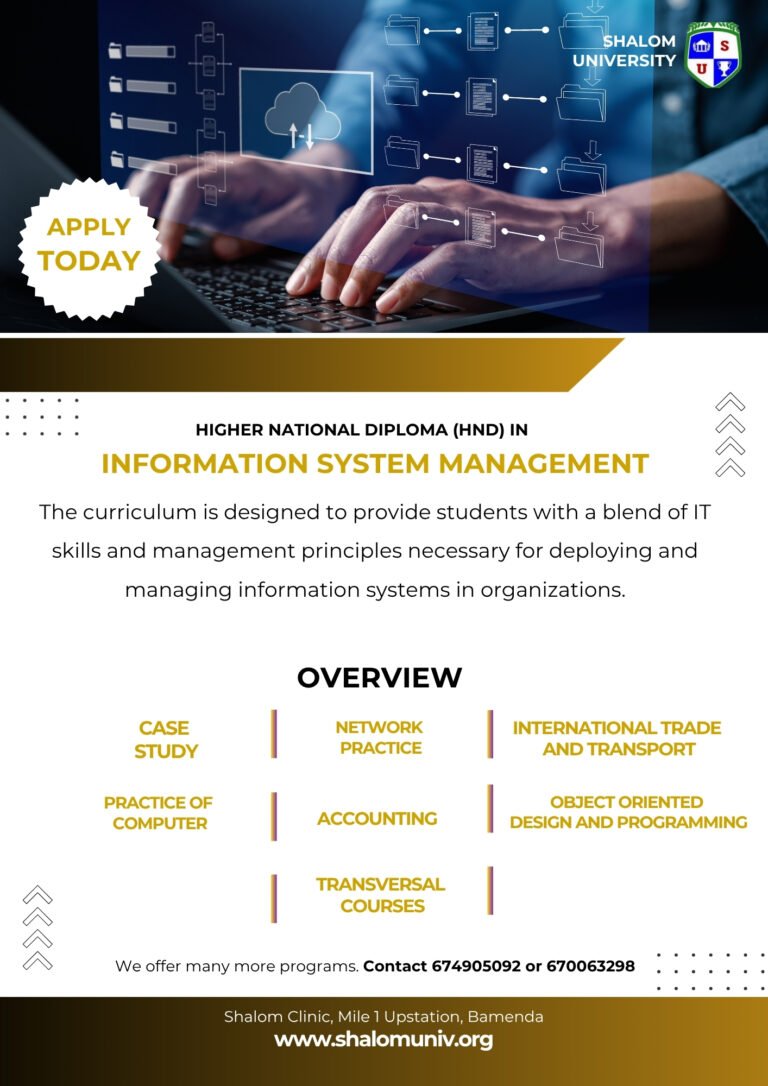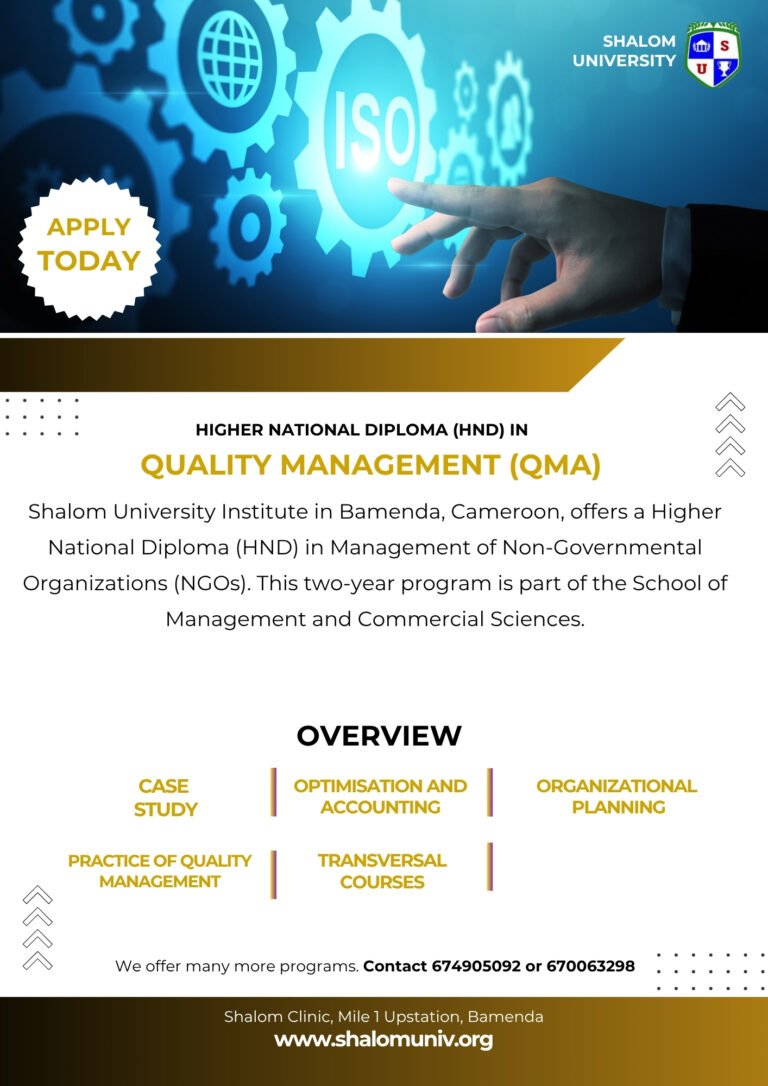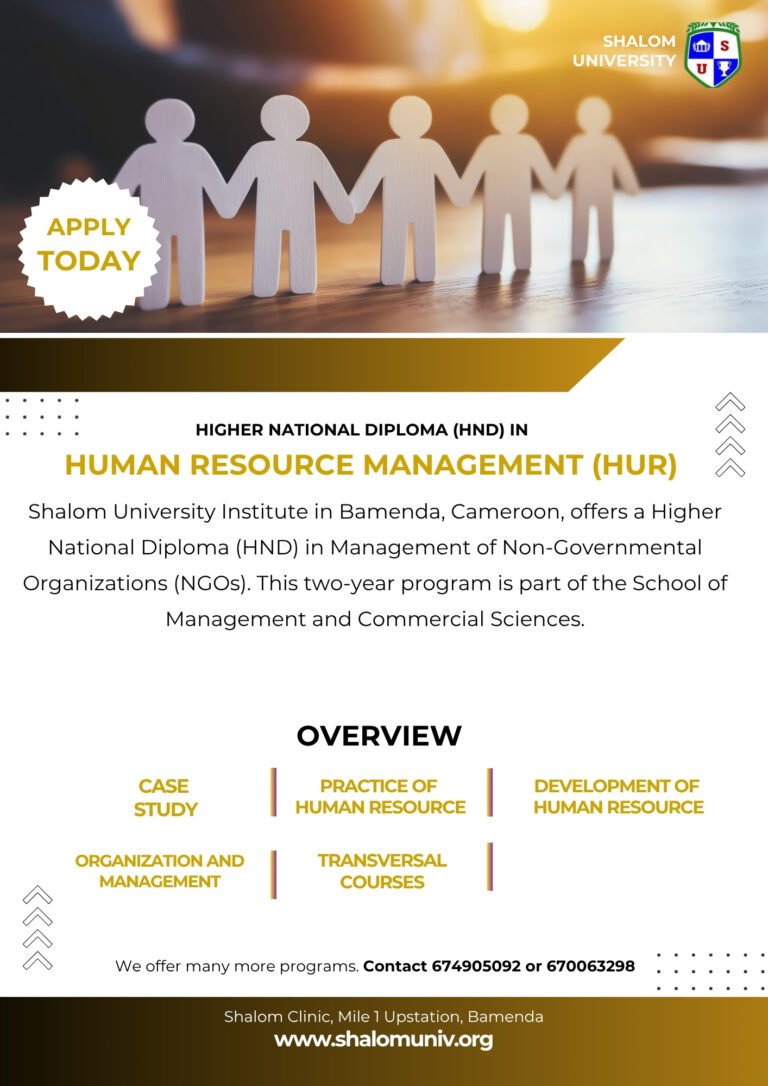In Cameroon, the efficient movement of goods and people is the lifeblood of its economy, connecting producers to markets, businesses to suppliers, and communities to essential services. A robust logistics and transport sector is crucial for national development, facilitating trade, enhancing competitiveness, and supporting public infrastructure projects. The HND in Logistics and Transport Management (LTM) at Shalom University in Bamenda is precisely designed to train the next generation of professionals who can navigate and optimize these complex supply chains.
The program at Shalom University offers a unique blend of theoretical knowledge and practical skills, preparing graduates to manage the intricate flow of international freight, adhere to transport laws, ensure safety, and contribute to sustainable practices, all within the specific context of Cameroon and the Central African region.
The LTM Curriculum at Shalom University
The HND in Logistics and Transport Management program at Shalom University is structured around a set of core papers that provide a comprehensive and practical education in the field.
Paper: Case Study
The Case Study paper is a vital component that integrates all the theoretical knowledge and technical skills gained throughout the program. It challenges students to analyze complex logistical scenarios, from optimizing supply chains for agricultural exports to managing urban transport networks. This is particularly relevant for logistics and transport managers in Cameroon, who must often navigate challenging infrastructure, complex customs procedures, and diverse regulatory environments.
The course trains students to:
- Analyze real-world logistics challenges: Based on a given case, students must evaluate operational bottlenecks, cost inefficiencies, or regulatory hurdles faced by businesses or organizations in Cameroon.
- Identify critical issues: They pinpoint specific problems related to international freight forwarding, trade compliance, transport safety, or environmental management within a logistical context.
- Propose evidence-based solutions: Students formulate practical recommendations based on logistics principles, transport laws, risk analysis, and supply chain optimization techniques. For example, a case study might involve analyzing delays in getting goods from the port of Douala to inland regions, requiring a proposal for improved transport planning or customs clearance processes.
- Defend their decisions: During formal presentations, students must justify their analysis and proposed solutions, demonstrating their critical thinking and communication skills, which are essential for effective management and stakeholder coordination.
Paper: International Freight Forwarding
In Cameroon’s increasingly globalized economy, the ability to manage the international movement of goods is a highly sought-after skill. This paper provides students with a detailed understanding of the processes, documentation, and regulations involved in international freight forwarding.
Key topics include:
- Modes of Transport: An exploration of various modes of international transport, including sea freight, air freight, road transport, and rail.
- Customs Procedures: Understanding the customs regulations, duties, and documentation required for importing and exporting goods in Cameroon and its trading partners.
- Documentation: Mastery of critical documents like bills of lading, airway bills, customs declarations, and insurance certificates.
- Incoterms: Understanding international commercial terms (Incoterms) and their implications for buyer and seller responsibilities.
- Cargo Handling and Storage: Best practices for loading, unloading, handling, and storing various types of cargo, including perishable and hazardous goods.
Paper: International Trade and Transport
This paper provides a broader economic and policy context for understanding the role of transport in facilitating international trade, particularly relevant to Cameroon’s position within regional economic blocs like CEMAC.
The curriculum covers:
- Theories of International Trade: Understanding the economic principles that drive international trade flows.
- Trade Agreements and Policies: An overview of regional (e.g., CEMAC) and international trade agreements and their impact on transport and logistics.
- Global Supply Chains: The structure and management of complex global supply chains and the role of transport in linking different stages.
- Trade Facilitation: Strategies and initiatives aimed at simplifying and streamlining trade procedures, including customs modernization and port efficiency improvements in Cameroon.
Paper: Transport Safety and Environmental Management
Ensuring safety in transport operations and managing their environmental impact are increasingly important responsibilities for logistics professionals. This paper addresses these critical aspects, reflecting global best practices and local regulatory needs.
Key areas of focus include:
- Road Safety Regulations: Understanding and applying road safety laws and regulations specific to Cameroon and the Central African sub-region.
- Accident Prevention: Strategies for identifying and mitigating risks that lead to transport accidents.
- Hazardous Materials Handling: Safe handling, storage, and transport of dangerous goods, adhering to international and national regulations.
- Environmental Impact Assessment: Understanding the environmental effects of transport activities and methods for minimizing pollution.
- Sustainable Logistics: Implementing sustainable practices in transport and logistics, including optimizing routes, reducing fuel consumption, and adopting greener technologies.
Paper: Management (common for LTM and PSM)
This paper provides the foundational management principles applicable across various organizational settings, including logistics and transport. It equips students with the essential skills to lead teams, make informed decisions, and optimize operational efficiency.
The curriculum covers:
- Organizational Structures and Leadership: Understanding different organizational models and effective leadership styles.
- Planning, Organizing, Leading, Controlling (POLC) Framework: The core functions of management.
- Decision Making and Problem Solving: Techniques for analyzing situations, evaluating options, and making effective decisions.
- Team Building and Motivation: Strategies for developing and motivating project and operational teams.
- Communication Skills: Essential communication techniques for interacting with staff, clients, and stakeholders.
Paper: Transport Law
Navigating the legal framework governing transport is critical for compliance and risk management. This paper provides students with a detailed understanding of the laws and regulations impacting logistics and transport operations in Cameroon.
Key areas of focus include:
- National Transport Laws: A deep dive into Cameroonian laws governing road, rail, air, and maritime transport.
- International Transport Conventions: Key international agreements and conventions that impact cross-border transport (e.g., CMR for road transport, conventions for air and sea).
- Contract Law in Transport: Understanding transport contracts, liabilities, and responsibilities.
- Insurance in Transport: The role of insurance in mitigating risks associated with goods in transit and transport operations.
- Dispute Resolution: Mechanisms for resolving disputes related to transport contracts, delays, or damages.
Orchestrating Movement and Trade
Graduates of the HND in Logistics and Transport Management from Shalom University are well-prepared to enter the workforce in various roles across Cameroon’s vital logistics sector. They can serve as Logistics Coordinators, Transport Planners, Freight Forwarders, Supply Chain Analysts, or contribute to management teams in ports, shipping companies, manufacturing firms, or distribution centers. Their proficiency in international freight, trade regulations, transport safety, and general management, coupled with a deep understanding of the Cameroonian context, makes them highly sought-after candidates. The Case Study paper ensures that they are not just technically skilled but also adept at applying their knowledge to solve complex logistical challenges. By providing a practical and contextually relevant education, Shalom University plays a significant role in nurturing the logistics expertise crucial for driving trade, infrastructure development, and economic growth in Cameroon.




